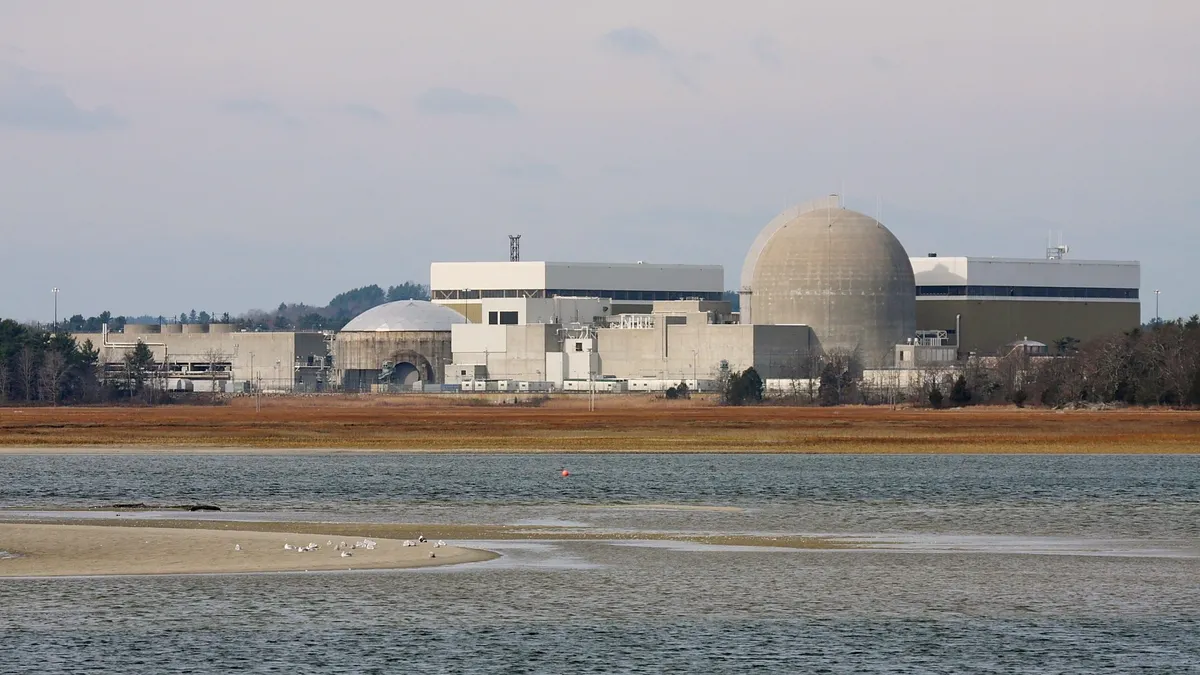Hawaii regulators took a step toward performance incentives for its dominant electric utility, but transitioning to true performance-based regulation (PBR) will be contentious, judging from the stakeholder response.
The cost of importing expensive fuel oil for power generation in the state has led to many debates over the best way to align utility incentives with customer interests — such as using a sharing mechanism to split fuel price volatility risks between the utility's shareholders and its ratepayers.
On June 22, the Hawaii Public Utilities Commission (HPUC) approved a risk sharing mechanism proposed by the environmental group Blue Planet in a new foray into performance-based incentives. Many in the state see the move as an indication that more reforms are coming in the state's regulatory docket on PBR, initiated this year.
The new risk sharing mechanism is mean to give the Hawaiian Electric Companies (HECO) "skin in the game," said former Colorado regulator Ron Binz, who testified at the HPUC on behalf of Blue Planet. But both HECO and Hawaii's consumer advocate question whether the new PBR provision will ultimately serve customer interests.
Sharing fuel price volatility
Under Hawaii's Energy Cost Adjustment Charge (ECAC), HECO was able to pass 100% of its fuel costs to customers, giving it no incentive to minimize its use of fuel oil and working against Hawaii's 100% renewables by 2045 mandate, Binz said.
Blue Planet proposed an alteration to ECAC to align HECO and customer interests on the high and volatile cost of the imported fuel oil, as the utility currently had "no direct financial incentive — reward or penalty — to stabilize and reduce power supply fuel costs," Binz said.
Allowing the utility to pass its costs to customers without any risk to profits "dampens efficiency," Binz said.
The HPUC approved a sharing mechanism that splits fuel price volatility risk 98% and 2% between ratepayers and HECO. The ruling also limits HECO's annual exposure to $2.5 million.
The commission chose "a deliberately conservative and gradual approach," in order to avoid threatening HECO's "financial integrity," regulators wrote in the ruling. The 2% shared risk will increase HECO's "level of attention" and give it "motivation to manage and avoid the costs and risks of fossil fuels."
"The risk-sharing mechanism is part of the state's policy to reduce fossil-fuel use and obviously we support that goal," a HECO spokesperson emailed Utility Dive. However, HECO objected to increasing the utility's risk to oil fuel cost volatility.
"We do not have control over global oil markets and resulting prices," Jim Kelly, HECO VP, told Utility Dive via email. "Our performance should be judged on factors within our reasonable control."
Binz, who testified several times to the HPUC, resolved a key barrier for the commission by proposing that HECO use the average fuel price in January as a price baseline for fuel cost volatility.
Blue Planet had proposed that HECO be allowed to pass 95% of the monthly average price variation in fuel price to customers, which could include a rise or fall in price. That would leave HECO to gain or lose revenues from the other 5%, capping the utility's annual maximum exposure at $20 million.
Approval of the fuel risk program could be a sign of things to come. On April 18, HPUC ordered a larger proceeding (docket 2018-0088) to "investigate" PBR-related "economic and policy issues." In its order, the commission acknowledged its 2014 white paper as foundational for its interest in PBR.
Blue Planet used that white paper at the center of its performance-based proposal in its September 22, 2017 filing for the just-completed 2016 HECO General Rate Case. By approving the Blue Planet proposal in its June ruling on the rate case proceeding, the HPUC hinted to stakeholders about how it will eventually rule in the wider PBR proceeding.
Separately, the Hawaii legislature also instructed the HPUC to move ratemaking to "a performance-based model" in SB 2939, which requires "the existing utility business and regulatory model" to be "updated for the twenty-first century."
Comparing HECO's sharing mechanism
The HPUC's ruling is not exactly groundbreaking. Every state has a fuel charge adjustment, and seven states also have sharing mechanisms in place, Binz said. "The news is not that customers will see a big difference on their bills or that it will cause the utility to stop using fossil fuels."
The objective was for the HPUC to address fuel price volatility as a separate item, he added.
"The utility will be exposed to the actual risk of volatile oil and natural gas prices and will be able to more completely compare investments in them with investments in renewables with locked-in prices,” Binz said.
Over the past 10 years, HECO's fuel costs, approximately $10.7 billion, were 60% of HECO's total revenues, approximately $18.03 billion, according to Blue Planet.
"Most states with sharing mechanisms are in the 20% to 30% of total revenues range because coal has a stable contracted price," Binz said. But the sharing mechanism can directly transfer to any state that is concerned about fuel price volatility, he said.
Meanwhile, Blue Planet Reported that utilities in Oregon and Vermont who — over the last decade — paid a high percentage of their revenues toward fuel costs had already established a more aggressive sharing mechanism.
| State | Utility | Total Revenue Used for Fuel Costs | Sharing Mechanism Risk for Ratepayers | Risk Assumed by Utilities | Year |
|---|---|---|---|---|---|
| Hawaii | HECO | 60% | 98% | 2% | 2018 |
| Oregon | Portland General Electric | 40% | 90% | 10% | 2007 |
| Vermont | Green Mountain Power | 48% | 90% | 10% | 2006 |
SOURCE: Blue Planet
Additionally, PacifiCorp utilities face sharing mechanisms in five states. Fuel purchases are tracked regularly and "customer bills are adjusted annually," spokesperson Tom Gauntt emailed Utility Dive.
Avista Utilities has had a sharing mechanism for Idaho customers since 2001, spokesperson Debbie Simcock emailed Utility Dive. "It is an important mechanism that continues to operate as intended."
HECO at odds with risk-sharing
It will be difficult to judge the success or failure of the sharing mechanism, Binz said.
"The impact is designed to be long term, not short term," he said. "But the only way for HECO to avoid a small amount of lost revenues is to move more quickly to less price-volatile renewable resources."
HECO is already moving in that direction and this will not have a major impact, but utilities should not be fully shielded from risk because that creates a moral hazard, he said. "Without a sharing mechanism, utilities are induced to continue using fossil fuels."
The new mechanism will likely not lower rates, Binz said, but it "is good regulatory practice to make the utility more aware of fuel price volatility, and it is a step toward regulation through performance incentives."
HECO already supports the state's effort to reduce fossil fuel use and "has met every deadline and exceeded every renewable energy milestone," Kelly said. The state’s existing limited performance incentives and penalties led HECO to triple its renewable capacity and reduce oil use by nearly 2 million barrels per year.
The HPUC concluded that the renewables mandate actually increases the need for new incentives to move HECO away from fossil fuel generation, while complementing existing incentives.
It's a mistake to consider the sharing mechanism necessary “to motivate us to get off oil faster," Kelly said.
But despite the state's renewable energy goals, Binz told Utility Dive that there was no incentive to "minimize curtailment" or "maximize use" of renewables.
"If a drunk is singing outside your bedroom window in the middle of the night and you give him five dollars to go away, what happens the next night?" Binz asked. "And how would birdshot change that outcome? That's what an incentive is."
Like Binz, Kelly does not expect the mechanism to significantly impact rates. "If prices go up, and the company paid the maximum $2.5 million for fuel, the typical residential bill for a customer using 500 kWh would be reduced by $0.19 per month."
In the commission's debate on the sharing mechanism, HECO argued it is "a departure from prevailing regulatory practice," Kelly said. The mechanism would likely not be useful for other states because their fuel prices are "markedly" less volatile than Hawaii's.
HECO will, as directed by the ruling, submit proposals for tracking and benchmarking fuel costs, Kelly said. "I'm sure all the parties would like to keep it as simple as possible."
But this is not the kind of precedent HECO wants for the PBR proceeding, Kelly added. For incentive mechanisms to encourage utility performance and behavior, they need to give the utility "some reasonable control to achieve outcomes."
Consumer advocates remain skeptical
Hawaii's Consumer Advocate also opposed the sharing mechanism, Executive Director Dean Nishina told Utility Dive via email.
Hawaii's 100% renewables by 2045 mandate "is the most effective means of requiring the electric utility to use less fossil fuel," he said, making the sharing mechanism unnecessary. He said an earlier change to the ECAC (docket 2008-0274) also made it redundant.
The "deadband sharing mechanism applied to the heat rates used in calculating the ECAC" is already in place, the Nishina argued to the HPUC during the debate on Blue Planet's proposal.
The deadband mechanism rewards HECO for achieving lower "heat rate" in its fossil-burning plants through efficiencies that get more kWh from the burned fuel. The HPUC ruling said "the degree to which the ECAC heat rate mechanism shares risks with the utility is being eroded" by progressive widening of the deadband, so the new mechanism complements the existing incentives.
It would be "more efficient and simpler to modify the values in the deadband mechanism instead of adding a new and separate mechanism," Nishina said. The sharing mechanism will require "additional review work" to ensure that "duplicative, offsetting, and/or adverse impacts will not occur."
Earthjustice Attorney Isaac Moriwake, who represented Blue Planet in the proceeding, said it seemed contradictory for the Consumer Advocate to oppose an effort to reduce costs to customers. Nishina said his objection to the sharing mechanism is that the potential reduction in HECO's revenues could cause the utility to request recovery.
"We will need to be wary of the likelihood of requests for a higher return on equity in future rate cases," Nishina said. And the sharing mechanism "does not guarantee lower costs." If fuel prices fall, the utility would benefit while consumers might still pay for a higher return on equity.
Moriwake said the sharing mechanism "is an important first step in a broader movement to reform utility incentives." By giving the utility an incentive to reduce its fossil fuel use, it "is a timely opening kickoff" for the PBR proceeding, in which HECO will get "all the right incentives to align its financial interest with the public interest in a 100% clean energy future."






















